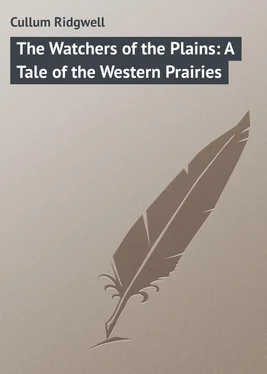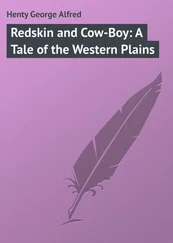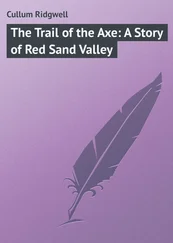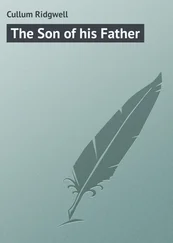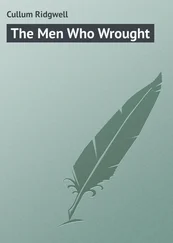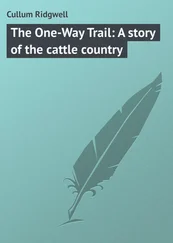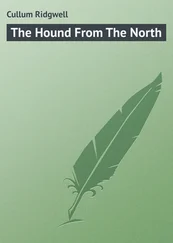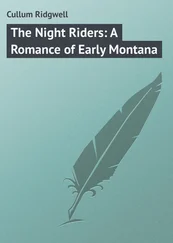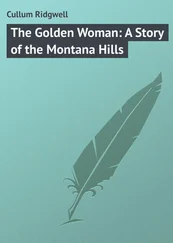Ridgwell Cullum - The Watchers of the Plains - A Tale of the Western Prairies
Здесь есть возможность читать онлайн «Ridgwell Cullum - The Watchers of the Plains - A Tale of the Western Prairies» — ознакомительный отрывок электронной книги совершенно бесплатно, а после прочтения отрывка купить полную версию. В некоторых случаях можно слушать аудио, скачать через торрент в формате fb2 и присутствует краткое содержание. Жанр: foreign_language, foreign_prose, foreign_adventure, на английском языке. Описание произведения, (предисловие) а так же отзывы посетителей доступны на портале библиотеки ЛибКат.
- Название:The Watchers of the Plains: A Tale of the Western Prairies
- Автор:
- Жанр:
- Год:неизвестен
- ISBN:нет данных
- Рейтинг книги:5 / 5. Голосов: 1
-
Избранное:Добавить в избранное
- Отзывы:
-
Ваша оценка:
- 100
- 1
- 2
- 3
- 4
- 5
The Watchers of the Plains: A Tale of the Western Prairies: краткое содержание, описание и аннотация
Предлагаем к чтению аннотацию, описание, краткое содержание или предисловие (зависит от того, что написал сам автор книги «The Watchers of the Plains: A Tale of the Western Prairies»). Если вы не нашли необходимую информацию о книге — напишите в комментариях, мы постараемся отыскать её.
The Watchers of the Plains: A Tale of the Western Prairies — читать онлайн ознакомительный отрывок
Ниже представлен текст книги, разбитый по страницам. Система сохранения места последней прочитанной страницы, позволяет с удобством читать онлайн бесплатно книгу «The Watchers of the Plains: A Tale of the Western Prairies», без необходимости каждый раз заново искать на чём Вы остановились. Поставьте закладку, и сможете в любой момент перейти на страницу, на которой закончили чтение.
Интервал:
Закладка:
These things arranged, then came the first check. It was discovered that the driver of the only locomotive in the place was sick. The engine itself, a rusty looking ancient machine, was standing coldly idle in the yards.
A deputation waited upon the sick man, while others went and coupled up some empty trucks and fired the engine. Seth was among the latter. The deputation returned. It was fever; and the man could not come. Being ready campaigners, their thoughts turned on their horses.
The sheriff was a blank man for the moment. It was a question of time, he knew. He was standing beside the locomotive which had already begun to snort, and which looked, at that moment, in the eyes of those gathered round it, despite its rustiness, a truly magnificent proposition. He was about to call for volunteers to replace the driver, when Seth, who all the time had been working in the cab, and who had heard the news of the trouble, leant over the rail that protected the foot-plate.
“Say, Dan,” he said. “If none of the boys are scared to ride behind me, and I don’t figger they are, I’ll pump the old kettle along. Guess I’ve fired a traction once. I don’t calc’late she’ll have time to bust up in forty miles. I’ll take the chances if they will.”
The sheriff looked up at the thoughtful face above him. He grinned, and others grinned with him. But their amusement was quite lost on Seth. He was trying to estimate the possible result of putting the “kettle,” as he called the locomotive, at full steam ahead, disregarding every other tap and gauge on the driving plate, and devoting himself to heaping up the furnace. These things interested him, not as a source of danger, but only in the matter of speed.
“Good for you, Seth,” cried Dan Somers. “Now, boys, all aboard!”
And Seth turned to the driving plate and sounded a preliminary whistle.
CHAPTER IV
ROSEBUD
It is nearly midday, and the Indians round the blazing woods on the southern spur of the Black Hills are in full retreat. Another desperate battle, such as crowd the unwritten history of the United States, has been fought and won. The history of the frontiersman’s life would fill a record which any soldier might envy. It is to the devotion of such men that colonial empires owe their being, for without their aid, no military force could bring peace and prosperity to a land. The power of the sword may conquer and hold, but there its mission ends. It is left to the frontiersman to do the rest.
The battle-field is strewn with dead and dying; but there are no white faces staring blankly up at the heavens, only the painted, seared features of the red man. Their opponents are under cover. If they have any dead or dying they are with the living. These men fight in the manner of the Indian, but with a superior intelligence.
But though the white men have won the battle their end is defeated. For the blazing woods have swept across the homestead of “old man” Jason, for years a landmark in the country, and now it is no more. A mere charred skeleton remains; smoking, smouldering, a witness to the white man’s daring in a savage country.
The blazing woods are approachable only on the windward side, and even here the heat is blistering. It is still impossible to reach the ruins of the homestead, for the wake of the fire is like a superheated oven. And so the men who came to succor have done the only thing left for them. They have fought and driven off the horde of Indians, who first sacked the ranch and then fired it. But the inmates; and amongst them four women. What of them? These rough plainsmen asked themselves this question as they approached the conflagration; then they shut their teeth hard and meted out a terrible chastisement before pushing their inquiries further. It was the only way.
A narrow river skirts the foot of the hills, cutting the homestead off from the plains. And along its bank, on the prairie side, is a scattered brush such as is to be found adjacent to most woods. The fire has left it untouched except that the foliage is much scorched, and it is here that the victors of an unrecorded battle lie hidden in the cover. Though the enemy is in full retreat, and the rearmost horsemen are fast diminishing against the horizon, not a man has left his shelter. They are men well learned in the craft of the Indians.
Dan Somers and Seth are sharing the same cover. The sheriff is watching the last of the braves as they desperately hasten out of range. At last he moves and starts to rise from his prone position. But Seth’s strong hand checks him and pulls him down again.
“Not yet,” he said.
“Why?”
But the sheriff yielded nevertheless. In spite of his fledgling twenty-two years, Seth was an experienced Indian fighter, and Dan Somers knew it; no one better. Seth’s father and mother had paid the life penalty seventeen years ago at the hands of the Cheyennes. It was jokingly said that Seth was a white Indian. By which those who said it meant well but put it badly. He certainly had remarkable native instincts.
“This heat is hellish!” Somers protested presently, as Seth remained silent, gazing hard at a rather large bluff on the river bank, some three hundred yards ahead. Then he added bitterly, “But it ain’t no use. We’re too late. The fire’s finished everything. Maybe we’ll find their bodies. I guess their scalps are elsewhere.”
Seth turned. He began to move out of his cover in Indian fashion, wriggling through the grass like some great lizard.
“I’ll be back in a whiles,” he said, as he went. “Stay right here.”
He was back in a few minutes. No Indian could have been more silent in his movements.
“Well?” questioned the sheriff.
Seth smiled in his own gradual manner. “We’re going to draw ’em, I guess,” he said. “Fill up.”
And the two men recharged the magazines of their Winchesters.
Presently Seth pointed silently at the big bluff on the river bank. The next moment he had fired into it, and his shot was followed at once by a perfect hail of lead from the rest of the hidden white men. The object of his recent going was demonstrated.
For nearly two minutes the fusilade continued, then Seth’s words were proved. There was a rush and scrambling and breaking of brush. Thirty mounted braves dashed out of the hiding and charged the white men’s cover. It was only to face a decimating fire. Half the number were unhorsed, and the riderless ponies fled in panic in the direction of those who had gone before.
But while others headed these howling, painted fiends Seth’s rifle remained silent. He knew that this wild rush was part of a deliberate plan, and he waited for the further development. It came. His gun leapt to his shoulder as a horse and rider darted out of the brush. The man made eastward, attempting escape under cover of his staunch warriors’ desperate feint. Seth had him marked down. He was the man of all whom he had looked for. But the aim had to be careful, for he was carrying a something that looked like woman’s clothes in his arms, and, besides, this man must not go free. Seth was very deliberate at all times; now he was particularly so. And when the puff of smoke passed from the muzzle of his rifle it was to be seen that the would-be fugitive had fallen, and his horse had gone on riderless.
Now the few remaining braves broke and fled, but there was no escape for them. They had defeated their own purpose by approaching too close. Not one was left to join the retreating band. It was a desperate slaughter.
The fight was done. Seth left his cover, and, followed by the sheriff, went across to where the former’s victim had fallen.
“Good,” exclaimed Somers, as they came up. “It is Big Wolf – What?” He broke off and dropped to his knees.
Читать дальшеИнтервал:
Закладка:
Похожие книги на «The Watchers of the Plains: A Tale of the Western Prairies»
Представляем Вашему вниманию похожие книги на «The Watchers of the Plains: A Tale of the Western Prairies» списком для выбора. Мы отобрали схожую по названию и смыслу литературу в надежде предоставить читателям больше вариантов отыскать новые, интересные, ещё непрочитанные произведения.
Обсуждение, отзывы о книге «The Watchers of the Plains: A Tale of the Western Prairies» и просто собственные мнения читателей. Оставьте ваши комментарии, напишите, что Вы думаете о произведении, его смысле или главных героях. Укажите что конкретно понравилось, а что нет, и почему Вы так считаете.
